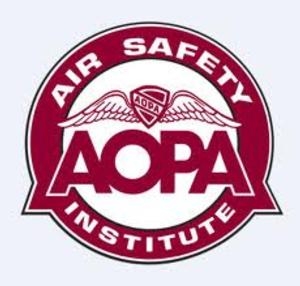Tue, Oct 21, 2014
The AOPA Air Safety Institute Annual Nall Report Gives Us Insight To Analyze The Areas Of Operation That Present The Greatest Risk For Experimental Aircraft
Last week AeroSports Update published a report from EAA regarding experimental-type aircraft accidents. In that report it was pointed out that the accident rate for this year’s reporting period may exceed what the FAA had forecast. In the Air Safety Institute Annual Nall Report we take a look at the areas of operation for experimental aircraft that are analyzed.

The Annual Nall Report is a statistical document that helps look at the past to improve the future. Because of the complexity of the report, the statistics are always about 2-3 years behind the current date of the report. For this reason accident numbers will not match the numbers for this current year as reported by EAA. However the conclusions of the Nall report give us great insight to accident analysis.
In the current Nall report, there were 198 accidents involving experimental amateur built aircraft (E-AB) and experimental light sport aircraft (E-LSA). Most aircraft certified as E-LSA’s are from those aircraft that were converted from 2-place ultralights to an experimental status under the sport pilot rules. This conversion period ran from September 2004 until January 2008.
Unlike accidents in type certificated fixed wing aircraft, mechanical problems were very nearly as common as landing accidents for experimentals. Emergencies during takeoff and climb were also more common in experimentals, accounting for more than 1 out of 8 of all fatal accidents.
The Nall report divides the accidents into 9 classifications of operation. They are:
- Mechanical 25.3%
- Fuel Management 6.1 %
- Weather .5 %
- Takeoff and Climb 12.6 %
- Maneuvering 4%
- Descent/approach 5.1%
- Landing 25.3%
- Other (pilot related) 9.1%
- Other or Unknown 12%
Fifteen of the 24 accidents classified as “other or unknown” involved unexplained engine stoppages; this is a chronic problem area for amateur built aircraft. All told, the combination of known mechanical breakdowns and unexplained power failures caused nearly a third of all accidents in this group of aircraft compared to 19% of those in type-certificated, fixed wing aircraft.
Note that the accident statistics found in the Nall report do not directly relate to the accident statistics released by EAA last week.
Unlike accidents in type-certificated, fixed wing aircraft, mechanical problems were very nearly as common as landing accidents. Emergencies during takeoff and climb were also more common in the E-AB and E-LSA.
More News
Aero Linx: International Federation of Airworthiness (IFA) We aim to be the most internationally respected independent authority on the subject of Airworthiness. IFA uniquely combi>[...]
Ultrahigh Frequency (UHF) The frequency band between 300 and 3,000 MHz. The bank of radio frequencies used for military air/ground voice communications. In some instances this may >[...]
A Few Questions AND Answers To Help You Get MORE Out of ANN! 1) I forgot my password. How do I find it? 1) Easy... click here and give us your e-mail address--we'll send it to you >[...]
From 2019 (YouTube Edition): Learning To Paint Without Getting Any On Your Hands PPG's Aerospace Coatings Academy is a tool designed to teach everything one needs to know about all>[...]
Also: Sustainable Aircraft Test Put Aside, More Falcon 9 Ops, Wyoming ANG Rescue, Oreo Cookie Into Orbit Joby Aviation has reason to celebrate, recently completing its first full t>[...]
 ANN's Daily Aero-Linx (05.06.25)
ANN's Daily Aero-Linx (05.06.25) ANN's Daily Aero-Term (05.06.25): Ultrahigh Frequency (UHF)
ANN's Daily Aero-Term (05.06.25): Ultrahigh Frequency (UHF) ANN FAQ: Q&A 101
ANN FAQ: Q&A 101 Classic Aero-TV: Virtual Reality Painting--PPG Leverages Technology for Training
Classic Aero-TV: Virtual Reality Painting--PPG Leverages Technology for Training Airborne 05.02.25: Joby Crewed Milestone, Diamond Club, Canadian Pilot Insurance
Airborne 05.02.25: Joby Crewed Milestone, Diamond Club, Canadian Pilot Insurance



